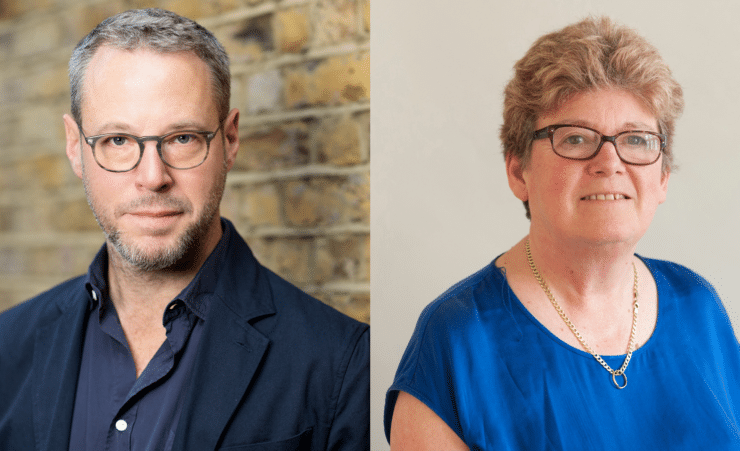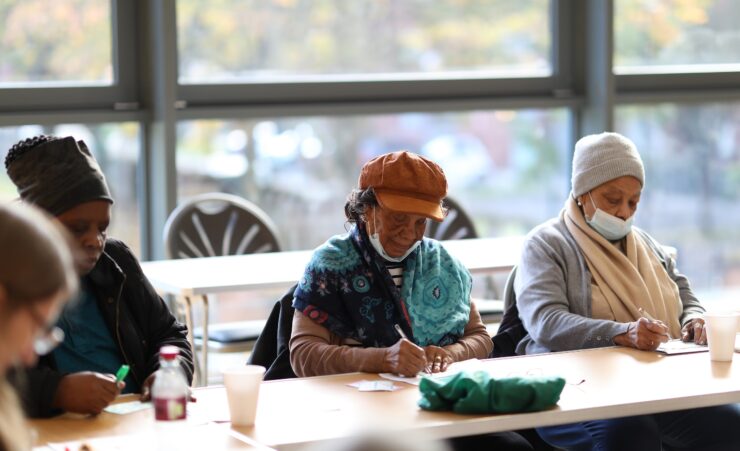
Let’s talk about learning partnerships
What are they and why do we use them?
Introduction
You may have noticed there has been a growing trend amongst funders and charities establishing ‘learning partnerships’ or working with ‘learning partners’ – but what are they?
At their core, learning partnerships are about doing ‘with’ rather than ‘for’. Whether it is a whole organisation or team of individuals, those involved in doing the work are active participants in the process of learning about what works, what needs to change and coming up with the solutions. A learning partner is the facilitator of this process.
The hope is that by going through the above process, those involved develop certain learning habits. For instance, when offered some insight into their work – such as a survey data or monitoring reports – teams are instinctively asking ‘what can we learn from this?’
What does a learning partnership involve?
1. Moving between roles: Learning partnerships are not a replacement for one-off evaluations or pieces of research – they often encompass elements of both.
The role of a learning partner is to wear a number of different hats. For example, also acting as sounding board, critical friend and facilitator of reflective conversations. They help to create spaces where those involved in the work come together and explore questions in greater depth.
IVAR do this in our work with Trussell Trust. We play a dual role as a researcher – carrying out interviews and facilitated conversations with foodbanks – and facilitator/critical friend – bringing the findings from these local level conversations back into internal discussions about Trussell Trust’s role in supporting foodbanks to engage in systems change work.
2. Look for and learn from existing knowledge and insights: We aren’t always searching for ‘new’ insights, although it would be rare for this to not feature at all.
The focus, certainly at the start, is to recognise and make sense of the existing knowledge within an organisation or team. This could be based on experiences and understanding of the context in which they work and, in some cases, previous research that’s been carried out.
3. Listen to and use the expertise of the different stakeholders involved: There are normally two questions we would ask at the start of any learning partnership.
Who needs to be involved to help you learn about the work?” and “who needs to be involved to turn what you learn into actions?”
We presented these questions in our role as learning partner to the One Southwark programme, working closely with the delivery team and young people at the heart of it.
As well as their participation in discussions about how the programme can best benefit young people, we supported them to carry out interviews with some of the local businesses, charities and public sector representatives involved in providing work placements and other support.
Sustainability is key, where learning has been about how they can continue to involve young people as co-designers going forwards.
4. A focus on real time learning, reflection and adaptation: Unsurprisingly, the desire to seek a learning partner and embed new habits is not isolated to the voluntary sector or to the UK.
It is linked to a wider recognition of rapidly changing external factors (political, economic, social, environmental). We need to be able to notice and respond to how these factors affect the issue and causes we’re seeking to address.
A key strand of our role as learning partner to the Propel programme has been looking at how funder practices and behaviours align with its principles, such as being flexible and bold.
We set up a community of practice, formed of funded organisations and funders. Together, they review what’s needed and what’s possible in terms of adaptations.
5. Help organisations build or strengthen their learning muscles: Learning partnerships are the protein shakes of the research and evaluation world.
At their best, they help organisations to feel more confident in focussing on insights that will provide a better understanding of the work. In other words, not just asking ‘what happened?’ but ‘so what?’. What does this mean – for our organisation, our project, this initiative – and what might we do differently? This includes having the confidence to share what has not worked so well.
Do you need a learning partner?
So, if learning partnerships cover all the above, should you always have one instead of just commissioning an evaluation? As the saying goes ‘you may not need a sledgehammer if you are just trying to crack a nut.’
You need to really think about what you are trying to do. If your primary need is to understand what contribution your project or programme made towards addressing a particular need, then a one-off evaluation may be the answer.
But if you want to take a deeper look at how to learn from the work and develop processes for turning insights into action then a learning partner may be the right way to do this.


